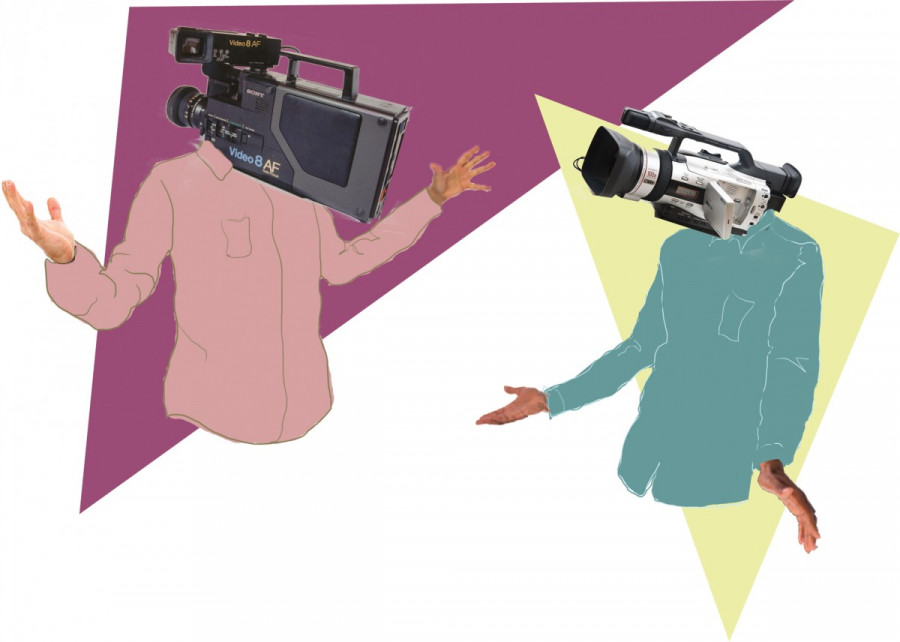Editorial: The Link Standards of Media Rhetoric, 2016
Balance is a loaded word in media these days.
We think we know what it means. We’re taught in journalism school that balance is akin to objectivity, and to good journalism.
As journalists, our paramount importance, our central function to a working democracy, is in our objective, non-partisan reporting on events.The sad truth is that media objectivity is a joke—instead, bias is institutionalized into our journalistic rhetoric.
The decision makers at corporate media cater to people who look like them—namely white people who are usually male. As such, this demographic doesn’t necessarily self-educate on progressive politics in terms of race, gender, and other topics.
A lack of understanding on complex issues like these will and does lead to problematic, “objective” reporting.
With this in mind, The Link has outlined a few areas requiring a redefining of balance, and a refocusing of efforts for the coming year. Some media resolutions, if you will, so that in 2016, the media might shift itself back toward representation of truth, and away from sponsorship of corporate policy.
Sexual Assault
In May, The Ottawa Sun published a piece on the assault of a 12-year-old girl by her gym teacher.
The piece ran with the headline, “Tryst with girl, 12, gets coach 5 months in jail.” The article, which described them as a “star-crossed pair,” gave heavy credence to the survivor’s belief that her abuser was a friend, a trusted confidant.
The coverage crafted an image of a lovers’ plight, unfairly ended by a heartless justice system, removing the context and ignoring the fact that a child is unsuited for emotionally healthy sexualized relationships.
The Sun published a reductive view of sexual assault as a non-serious, individualized crime, rather than an intensely traumatic product of institutionalized power dynamics.
As journalists, we shape our community’s conversation over issues such as assault, and it is a disservice to the people we work to inform to participate in the perpetuation of rape culture. Instead, we have to shift toward a media consent culture that both recognizes rape as violence, not sex, and contextualizes sexual assault as a widely prevalent result of attitudes, power dynamics and institutions within all communities.
Framing assault stories with reductive language dishonours the survivors’ stories, discourages them from acknowledging their traumas and normalizes the violent nature of rape.
The sad truth is that media objectivity is a joke—instead, bias is institutionalized into our journalistic rhetoric.
Race and Gender
The Toronto Star published a story last March featuring a new ghee shop in the city—ghee being an ancient form of clarified butter that originated in India. The new owner of the shop? A white woman.
The piece’s hook was that she was a former model turned local business owner. Not only did this woman profit from a cultural food tradition found in a plethora of local Indian grocery stores, she also did so while wearing a sari.
We don’t claim to be without fault in this issue either. In November 2015, The Link wrote a story about Montreal’s annual “Take Back the Night” march. In the story, we misidentified someone as “he” when they preferred the pronoun “they.” The mistake occurred after a rewrite during a four-part editing process—we assumed when we shouldn’t have.
Moral of these stories—let people of colour and members of the LGBTQ community tell their stories as often as possible, if they so desire.
If they can’t (or don’t want to), listen carefully and make sure you understand fully. Fight your inherent biases. Media is an old white cis-hetero male industry. This culture permeates into the day-to-day editorial decisions about who and what to cover, and how.
Mainstream media needs to prioritize hiring from marginalized groups. Representation is just as important as ever. It seems obvious, but who better to write about systemic issues than those who understand them first-hand?
It’s clear that many people from more privileged groups don’t quite comprehend cultural appropriation and identity politics yet.
Final Thoughts
We, the media, hold massive sway over the nature and direction of our national conversations. If we operate without consideration, without independence from policy or outside pressure, we remove our ability to honestly, positively inform a democratic populace.
Instead, we become a de facto tool of disingenuous propaganda, as useful as the hand of a dictator. We must refuse to perpetuate disinformation, we must reject indoctrination, we must illuminate authentically and choose our words wisely.



